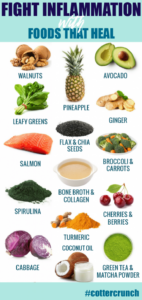Protein is a crucial nutrient for muscle building, as it provides the building blocks for muscle tissue repair and growth. This process requires a sufficient intake of protein to provide the necessary amino acids for muscle protein synthesis. When you engage in resistance training, you cause micro-tears in your muscle fibers, which then need to be repaired and rebuilt.
Incorporate protein-rich foods into your meals. Use protein powder as a supplement. Make sure to eat a variety of foods to get all the amino acids you need. Add protein-rich foods like beans, lentils, and tofu to your meals to boost your protein intake. Eat a variety of foods. Don’t forget about healthy fats. If you’re struggling to get enough protein from whole foods, consider adding a vegetarian protein powder to your diet. Adequate hydration is important for muscle growth and recovery. Healthy fats like nuts, seeds, and avocados are important for hormone production and can help support muscle growth.
Q: Can I consume no-carb sweets in moderation as part of a balanced diet?
A: Yes, no-carb sweets can be consumed in moderation as part of a balanced diet. However, it’s essential to be mindful of portion sizes and choose products made with natural sweeteners and wholesome ingredients.
They’re some of the highest protein-containing plant-based foods, with a 1 cup serving of cooked lentils providing about 18g of protein. Seitan: Seitan is a meat substitute made from wheat gluten and is a good source of protein. A 3 oz serving of tofu contains about 9g of protein, while a 3 oz serving of tempeh contains about 15g of protein. Legumes: Legumes are a class of vegetables that include beans, lentils, and peas. Nuts and Seeds: Nuts and seeds are a convenient and tasty way to boost your protein intake. Tofu and Tempeh: Tofu and tempeh are made from soybeans and are excellent sources of protein. A 3 oz serving of seitan contains about 21g of protein. Vegetarian Protein Powder: If you’re struggling to get enough protein from whole foods, consider adding a vegetarian protein powder to your diet. Other high protein legumes include chickpeas (15g per 1 cup serving), black beans (15g per 1 cup serving), and kidney beans (15g per 1 cup serving). Whole Grains: Whole grains like quinoa, brown rice, and whole wheat bread are good sources of protein, with a 1 cup serving of cooked quinoa providing about 8g of protein. Mushrooms: Some mushrooms, like shiitake and portobello, are high in protein, with a 1 cup serving of cooked mushrooms providing about 2g of protein. Almonds (6g per 1 oz serving), chia seeds (5g per 1 oz serving), hemp seeds (10g per 1 oz serving), and pumpkin seeds (7g per 1 oz serving) are all high in protein. Lentil and Bean-Based Meat Alternatives: Many meat alternatives, like veggie burgers and sausages, are made from lentils and beans and are high in protein. Vegetable Protein-Rich Foods: Some vegetables, like broccoli, spinach, and kale, are higher in protein than others, with a 1 cup serving of cooked broccoli providing about 2g of protein. Spirulina: Spirulina is a type of algae that’s high in protein, with a 1 tablespoon serving providing about 4g of protein. Common Myths About Plant-Based Protein Pea protein, hemp protein, and brown rice protein are all popular options.
Saves time: Meal prep saves you time during the week when you’re busy with work, family, or other activities.
Reduces stress: Knowing that you have healthy meals prepared in advance can reduce stress and anxiety.
Promotes consistency: Meal prep helps you stay consistent with your diet plan, which is essential for achieving your health goals.
Increases variety: Meal prep allows you to try new recipes and ingredients, which can help keep your diet interesting and varied.
Here are some of the most popular low-carb flours: There are several low-carb flours available, each with its own unique characteristics and benefits. When it comes to creating a low-carb yeast bread, the type of flour used is crucial.
While it’s true that some plant-based foods are low in certain amino acids, it’s easy to get all the amino acids you need by eating a variety of foods. Myth: Plant-based protein is not as effective as animal-based protein. Instead, focus on spreading your protein intake throughout the day. Studies have shown that plant-based protein is just as effective as animal-based protein at building muscle. Tips for Incorporating High Protein Vegetarian Foods into Your Diet Research shows that it’s not necessary to consume a large amount of protein at one time to build muscle. Myth: You need to eat a lot of protein at once to build muscle. Myth: Plant-based protein is incomplete.
While it’s true that animal products like meat, eggs, and dairy are high in protein, there are many plant-based foods that are just as effective at providing the protein you need to build muscle. Here are some of the best high protein vegetarian foods for muscle building:
No-Carb Ice Cream: Made with cream, coconut milk, or cashew cream, these ice creams are a delicious way to beat the heat without the carbs. Low-Carb Baked Goods: Cakes, cookies, and muffins made with almond flour, coconut flour, or flaxseed meal are popular no-carb sweet options. Sugar-Free Candies: Made with sugar substitutes like stevia, erythritol, or xylitol, these candies offer a sweet treat without the carbs. Keto-Friendly Chocolate: Made with cocoa butter, coconut sugar, or stevia, these chocolates are a decadent treat for keto dieters. Where to Buy No-Carb SweetsIf you cherished this report and you would like to get much more facts pertaining to kindly take a look at the web page.
